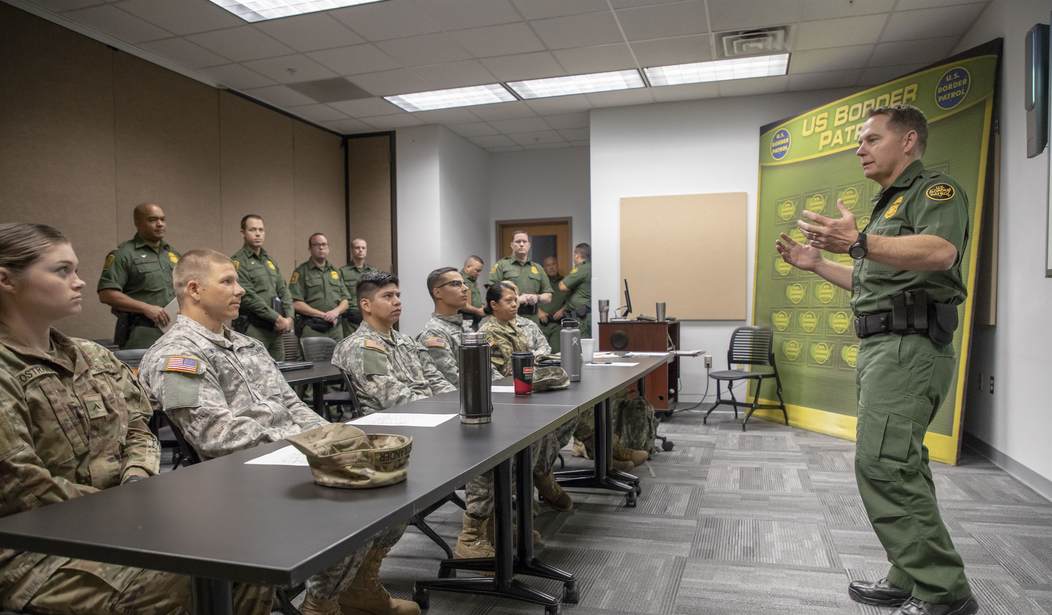Since the Commander-in-Chief issued his edict that all members of the military must be vaccinated against COVID, a very large majority of our troops in all branches of the service did what they always do. They saluted and went to see the corpsman and rolled up their uniform sleeves. But not all of them. The vaccination rate in the American military is now above 90%, well above the national average measured against any demographic. But this particular vaccine is clearly controversial enough that ten thousand or more troops have yet to follow the order. That’s left the Pentagon with some sticky decisions to make as to how to deal with those who are refusing to follow a lawful order. (We can debate the “lawful” nature of the order in a moment.) They have plenty of options in terms of punishment, but the top brass also wants to ensure that the rules are being applied evenly and fairly. They also don’t want to drive too many career service members out of their ranks. But time is running out for them to make those decisions. (Associated Press)
As deadlines loom for military and defense civilians to get mandated COVID-19 vaccines, senior leaders must now wrestle with the fate of those who flatly refuse the shots or are seeking exemptions, and how to make sure they are treated fairly and equally.
The vast majority of the active duty force has received at least one shot, but tens of thousands have not. For some it may be a career-ending decision. Others could face transfers, travel restrictions, limits on deployments and requirements to repay bonuses.
Exemption decisions for medical, religious and administrative reasons will be made by unit commanders around the world, on what the Pentagon says will be a “case-by-case” basis. That raises a vexing issue for military leaders who are pushing a vaccine mandate seen as critical to maintaining a healthy force, but want to avoid a haphazard, inconsistent approach with those who refuse.
While the topic of vaccine hesitancy is likely familiar to most of you by now, people who have never served in the military may not be aware of why this situation is somewhat unique compared to the civilian population. As we’ve discussed here in the past when dealing with unrelated topics, Americans who enlist in the military surrender a number of the basic rights that everyone else takes for granted. Your freedom of speech is significantly limited, as is your freedom of travel. And in terms of this particular debate, your freedom to make your own medical decisions is also significantly impaired.
I can still remember going through the vaccine lines when I was in the Navy back in the day. There was never anything “controversial” about any of those vaccines, so everyone just reported to the medical center when told to. Particularly when you were preparing for an overseas assignment, you might get more than a half dozen shots in a row. The only complaints came in the following days when you could barely lift your arm.
But now, the debate over the experimental mRNA technology used to develop the most commonly used COVID vaccines and the rapid pace at which they were tested and approved has obviously broken out among the troops. Some are thus far refusing to comply. But they are in a very different situation than civilians with similar concerns. They are technically breaking a lawful order and can face punishment under the military’s rules. And unlike people in the civilian workforce, many of them don’t have the option of simply quitting their job and walking away. Enlisted men and women sign up for set periods of service and they are only released from those obligations ahead of schedule under rare, specific circumstances. (Officers who have completed their initial terms of service generally have the option of resigning their commissions and leaving ahead of schedule.)
Options for punishment are still being debated. Noncompliant troops may face restrictions on travel and assignment opportunities, reductions in pay and/or rank, or even forfeiture of previously awarded bonuses. In the most drastic scenarios, they could be put in the brig or dismissed from the service entirely. If that sounds draconian to you, all I can say is… welcome to the military.
Another big problem is that the military is offering the option of medical, religious, or “administrative” exemptions to the vaccine mandate. The reason this is a sticky subject is that, under the current plan, requests for exemptions will be decided by unit commanders all around the world. That means that some troops will be serving under a by-the-book hardliner who will insist that everyone follow the rules and get their shots. But others may be led by someone who personally opposes the mandate and ends up approving every exemption request he or she receives. That’s going to cause a lot of grumbling among those who don’t serve under a like-minded unit commander, no matter which decision they favor.
We’ll keep an eye on this situation and offer updates as the situation warrants. The last thing we need in the current global climate is a rift among our men and women in uniform and the loss of some of our experienced military personnel because of some mandate that the President decided to impose on a whim.







Join the conversation as a VIP Member